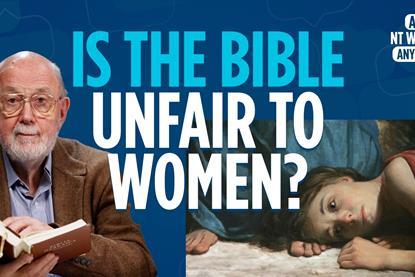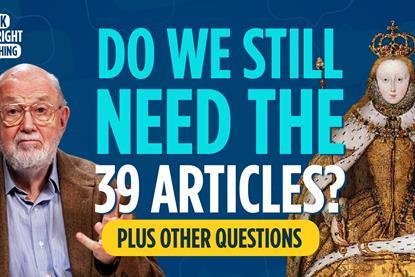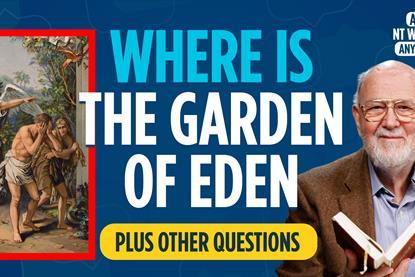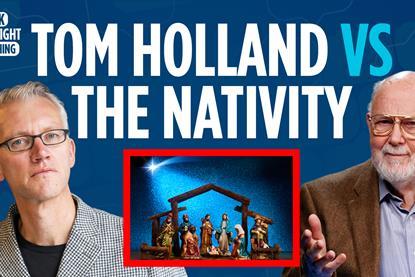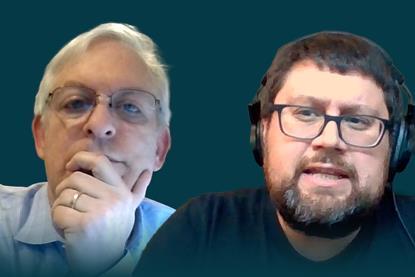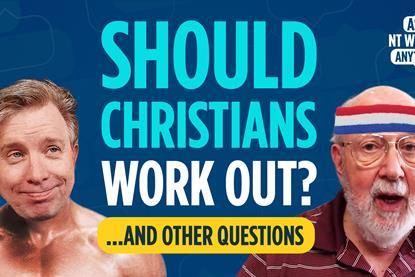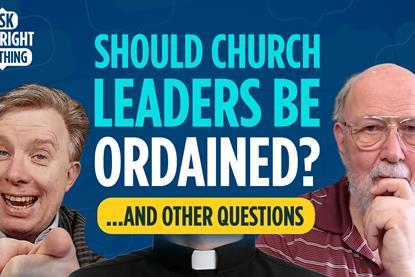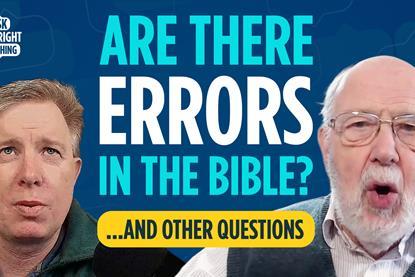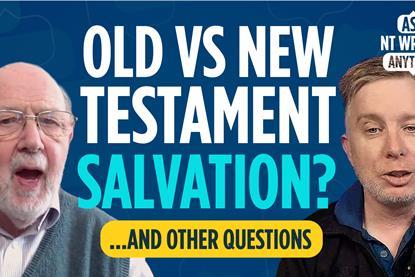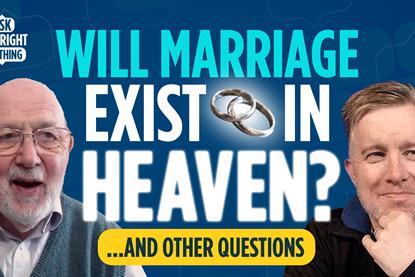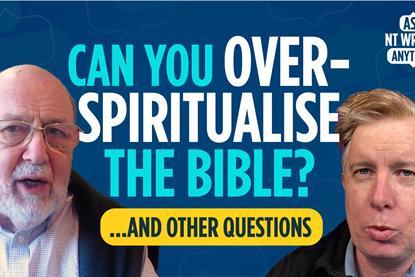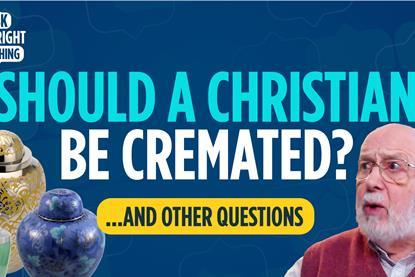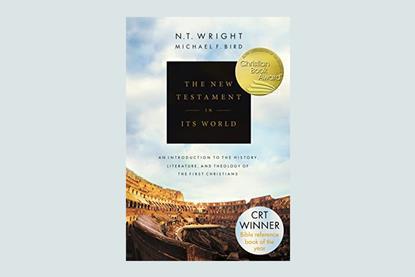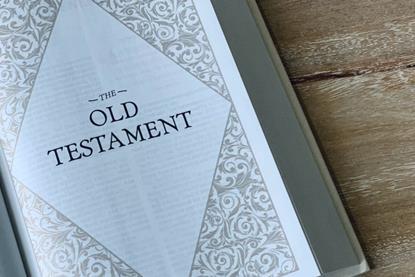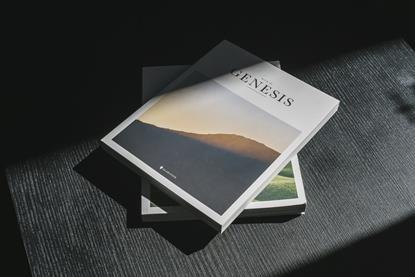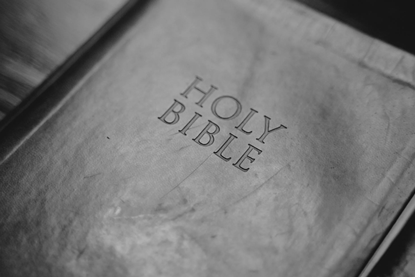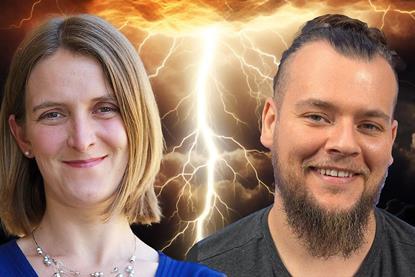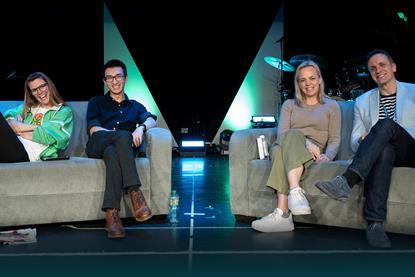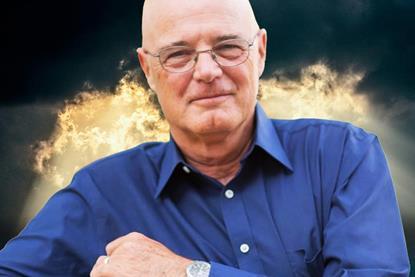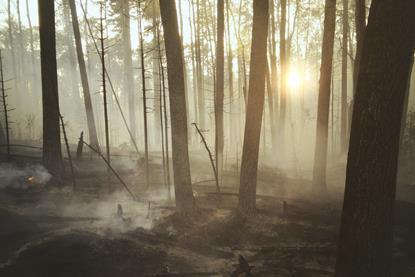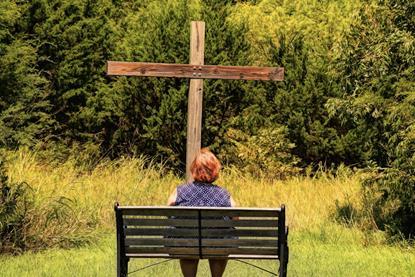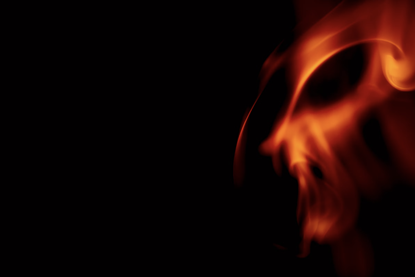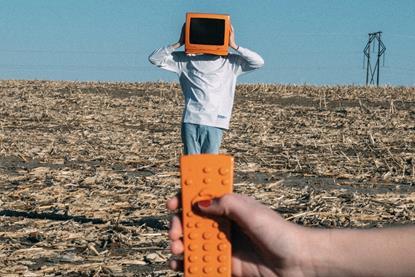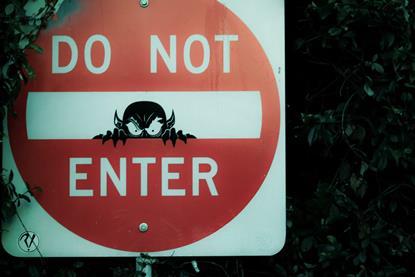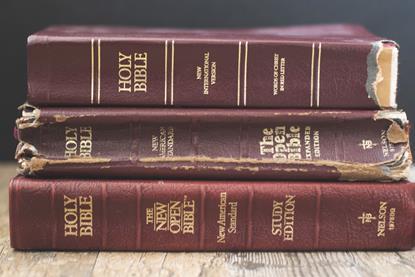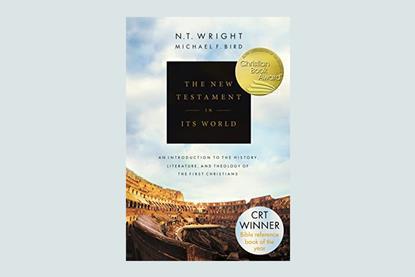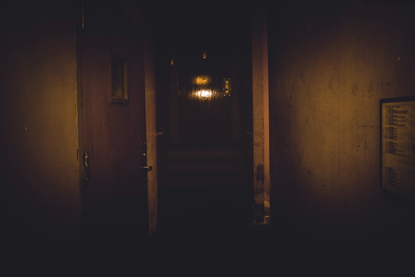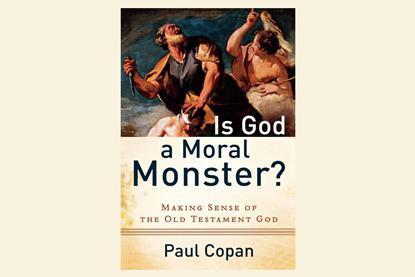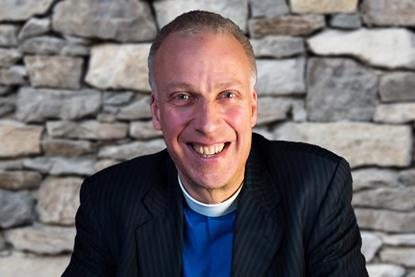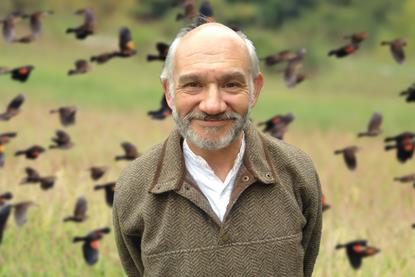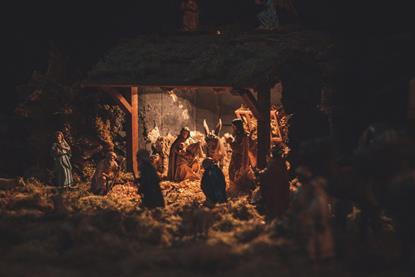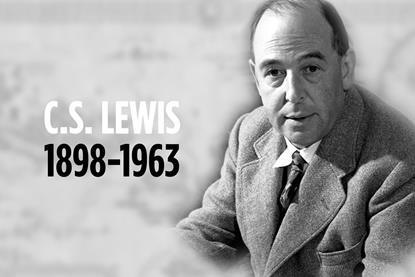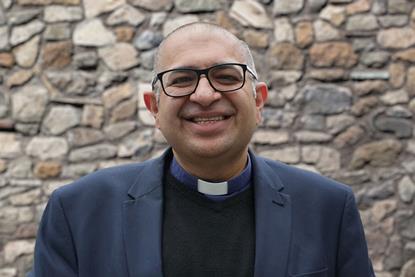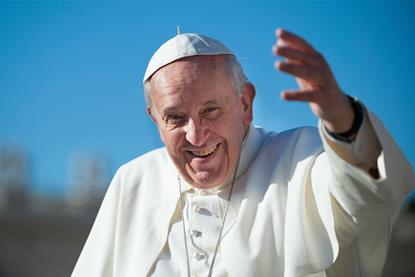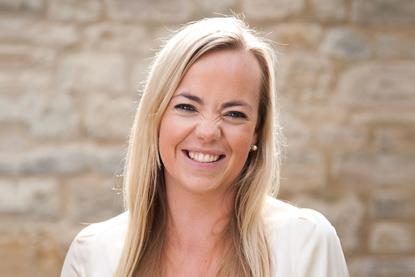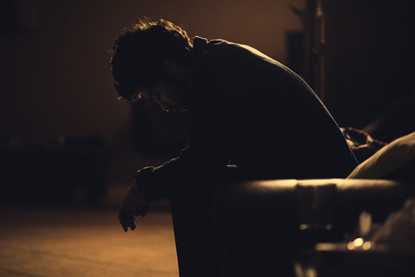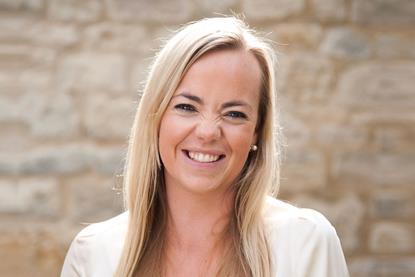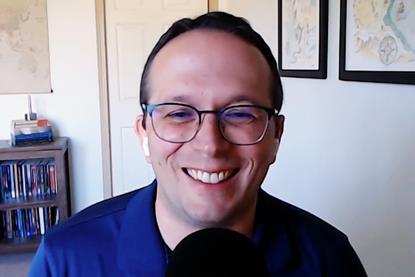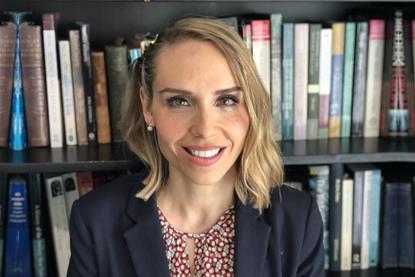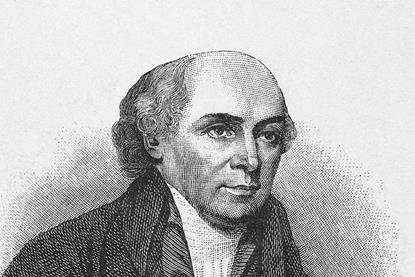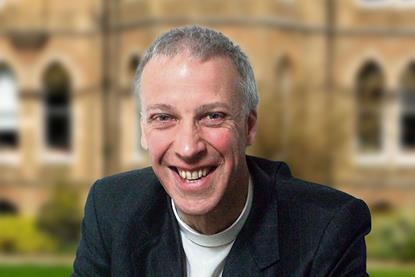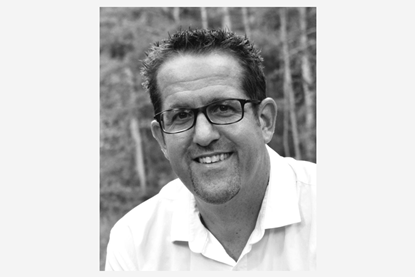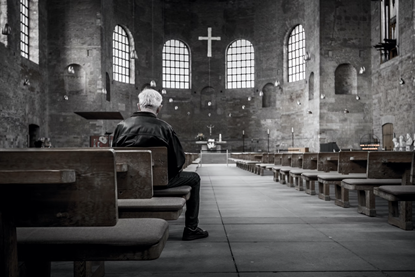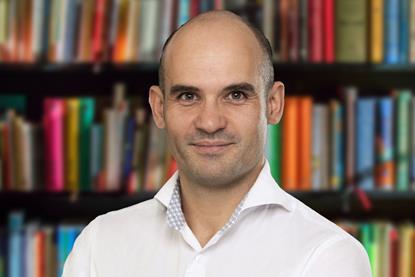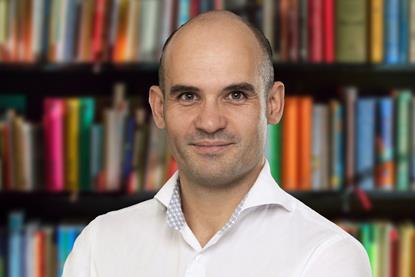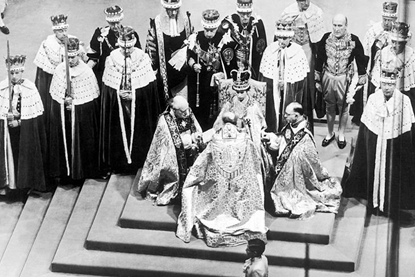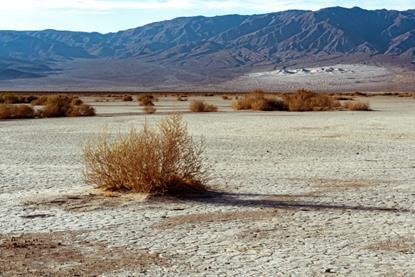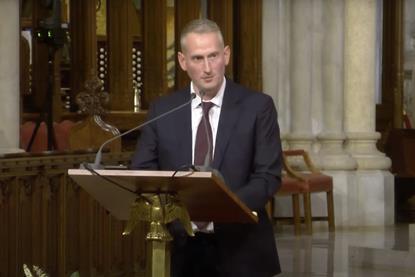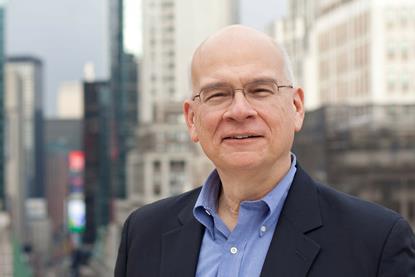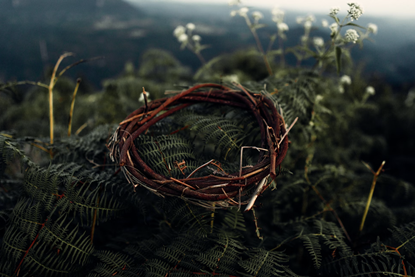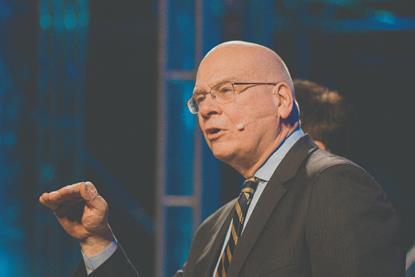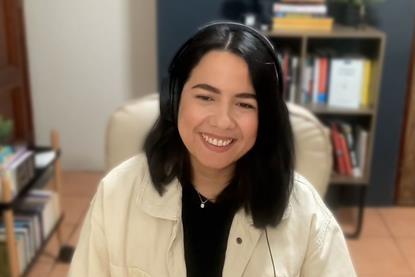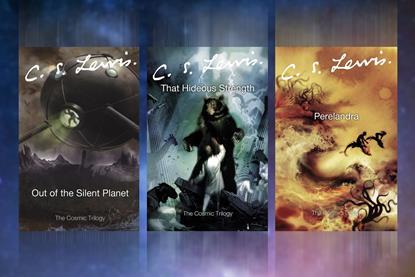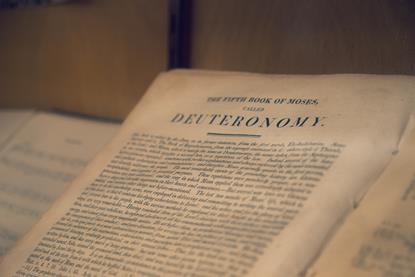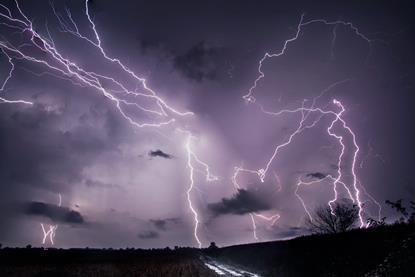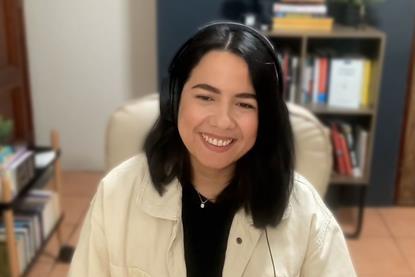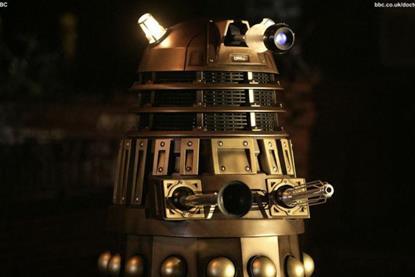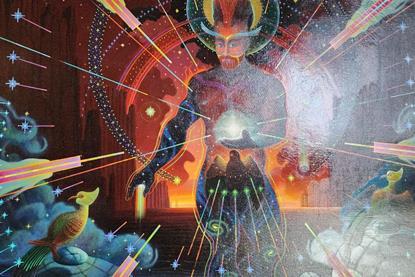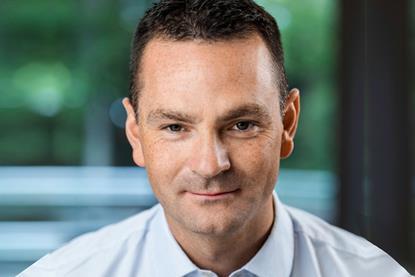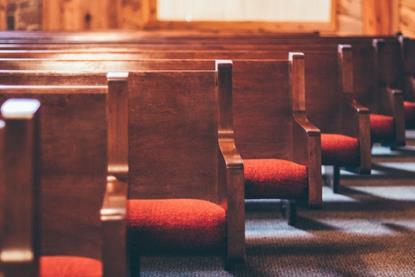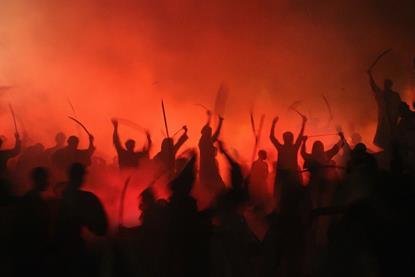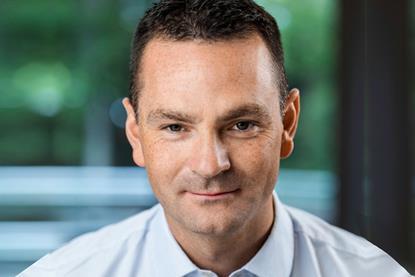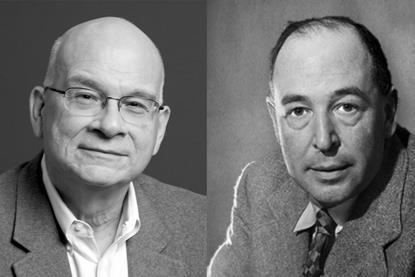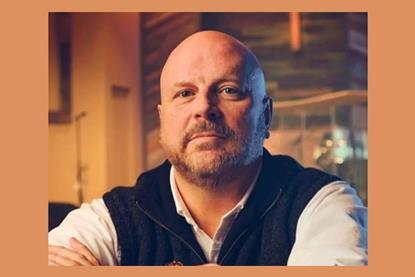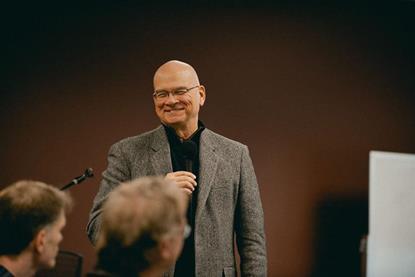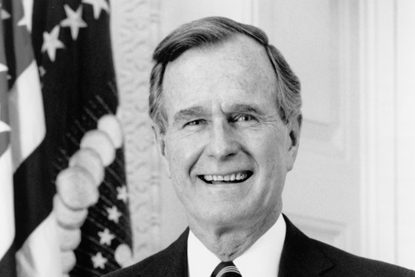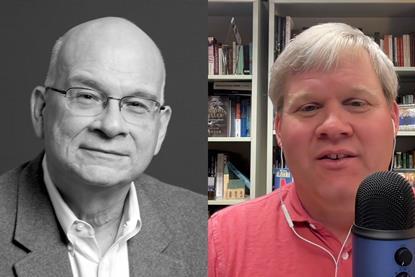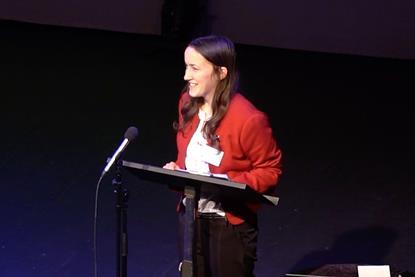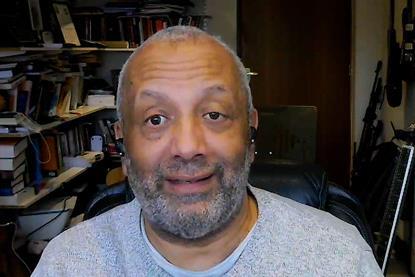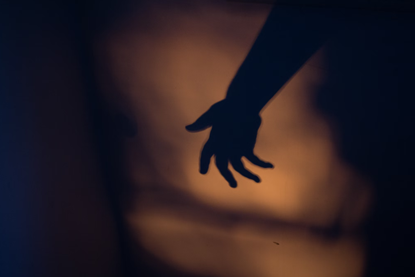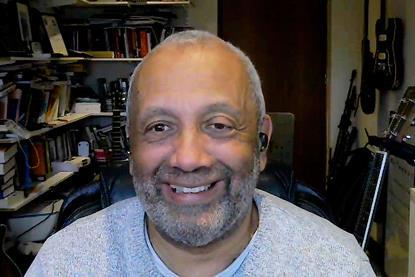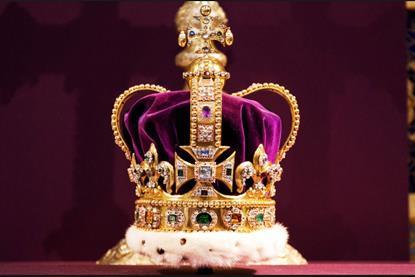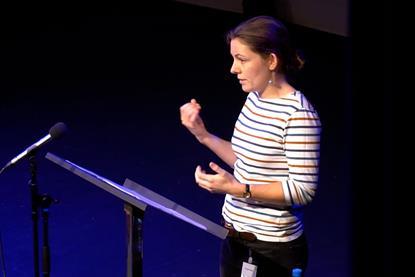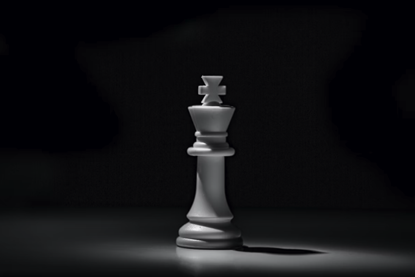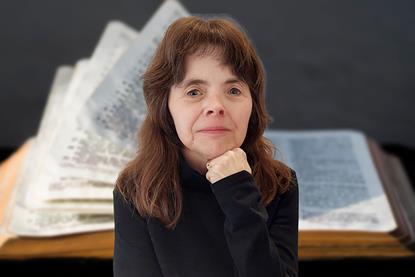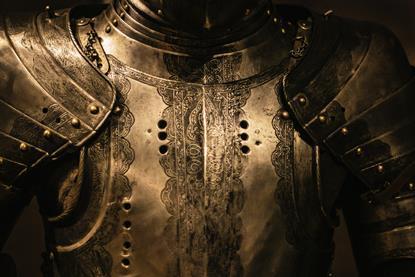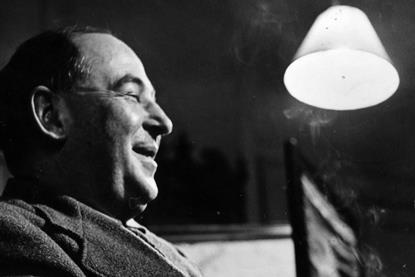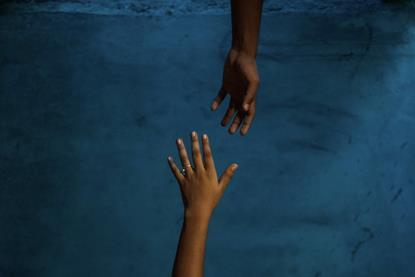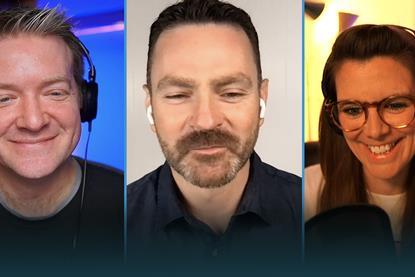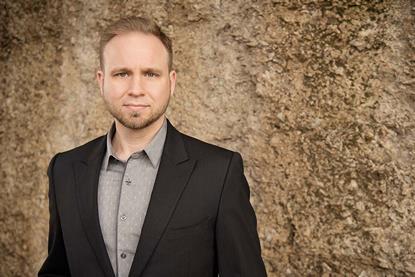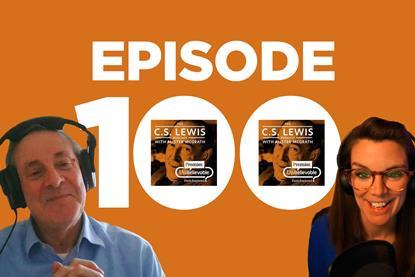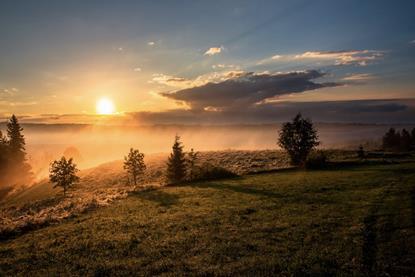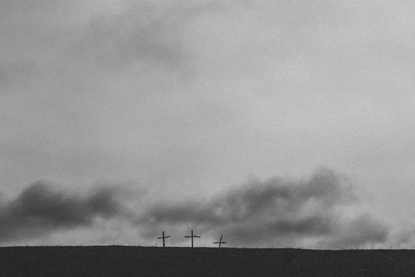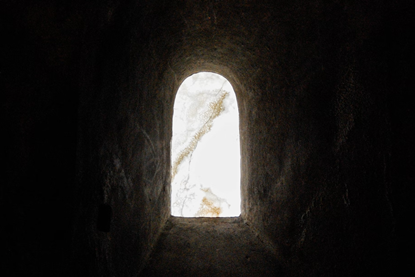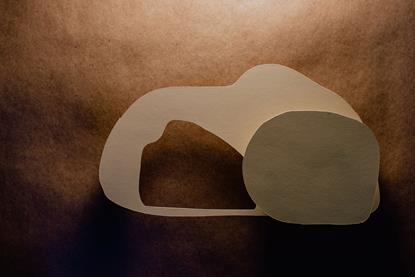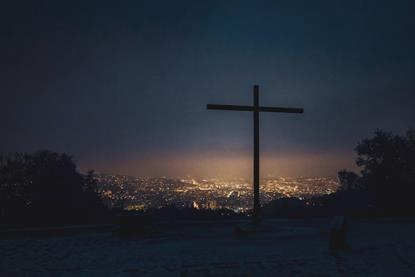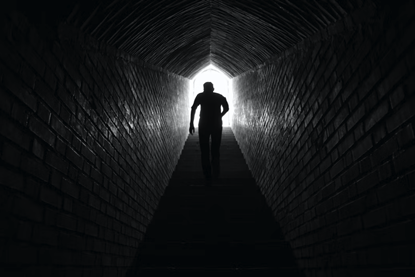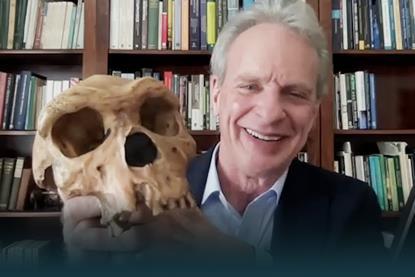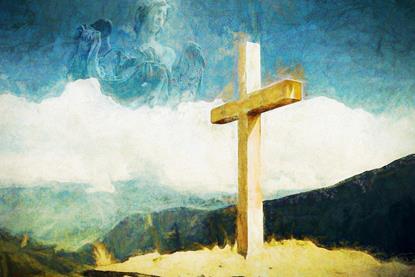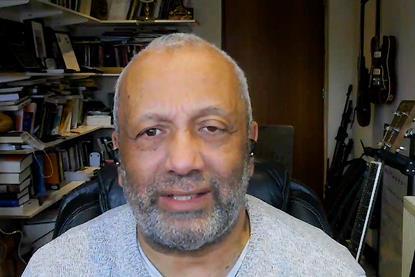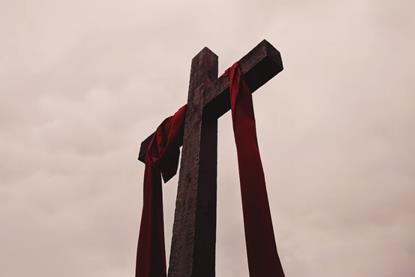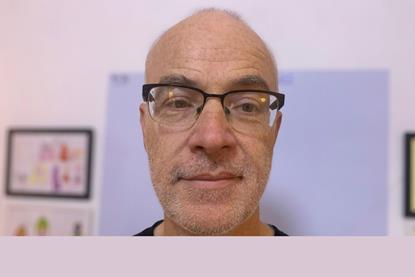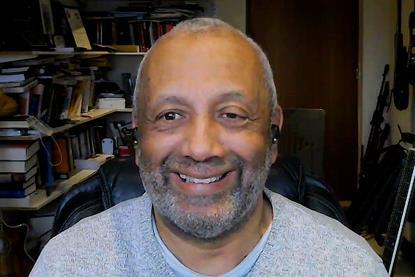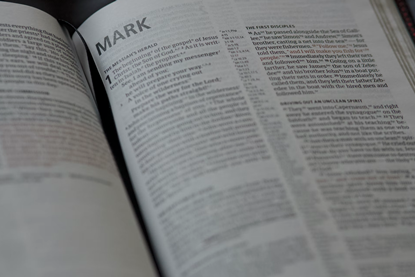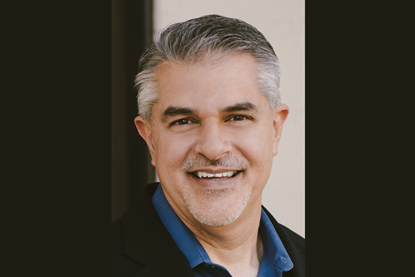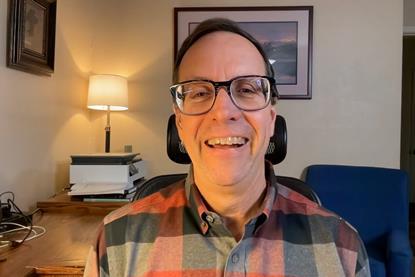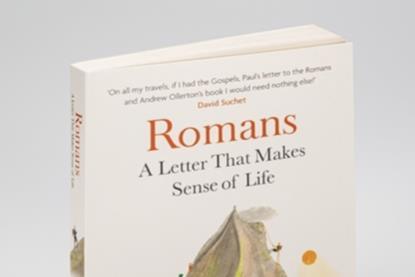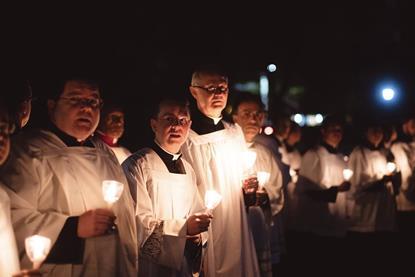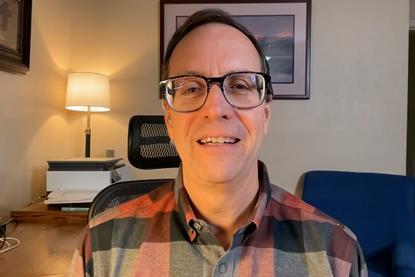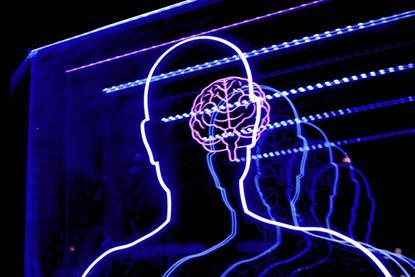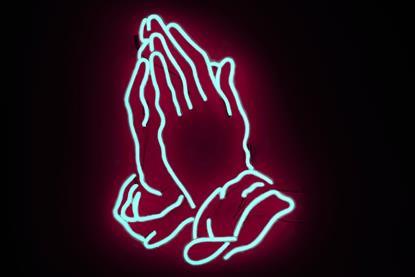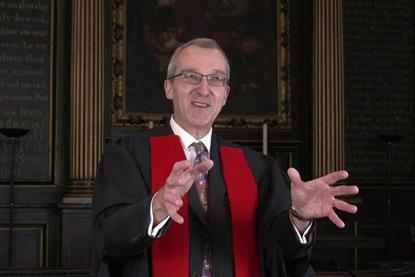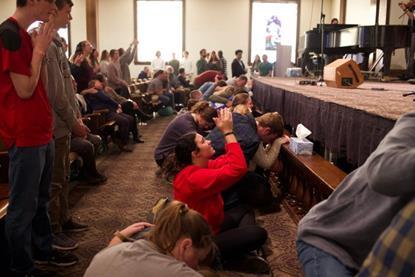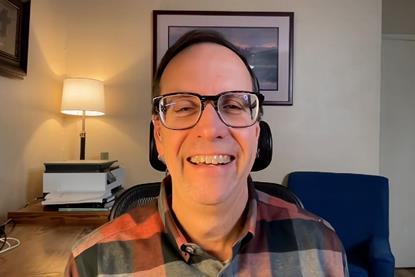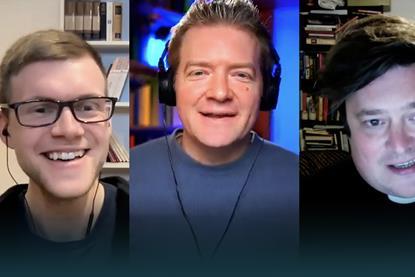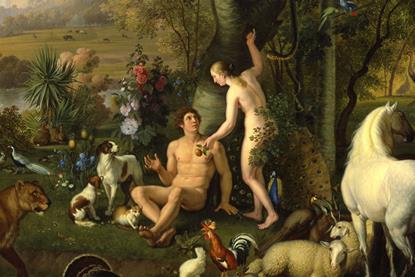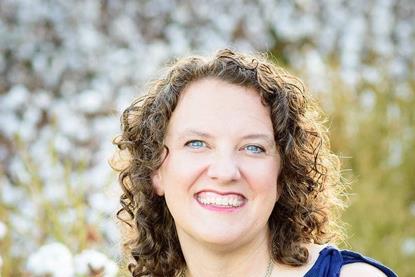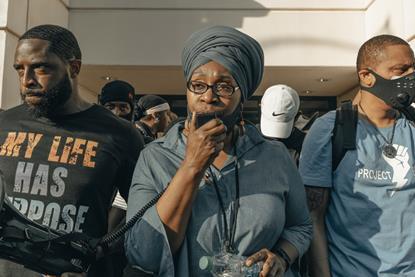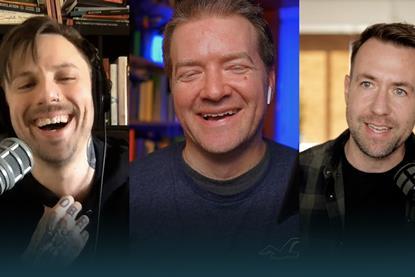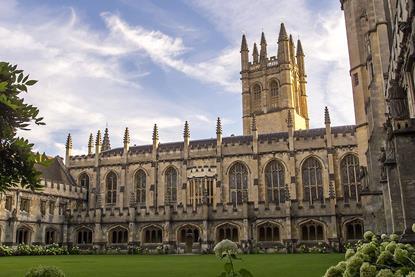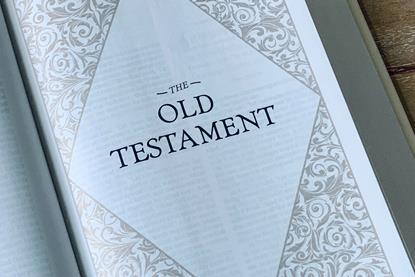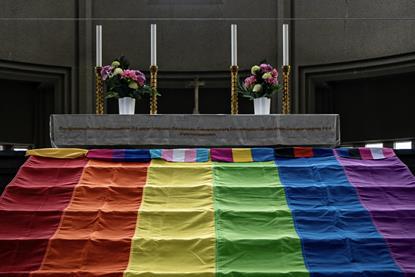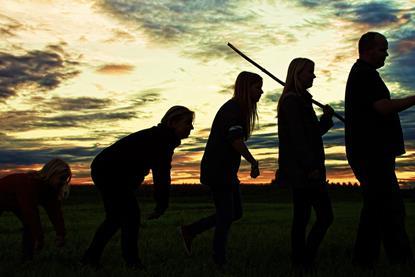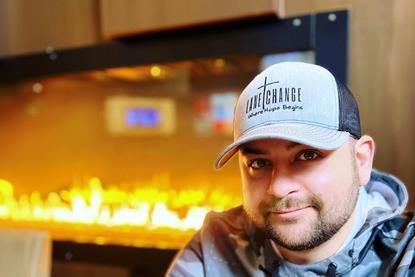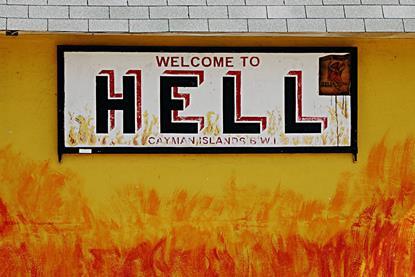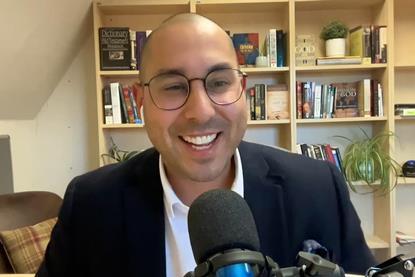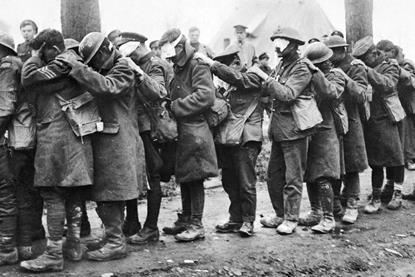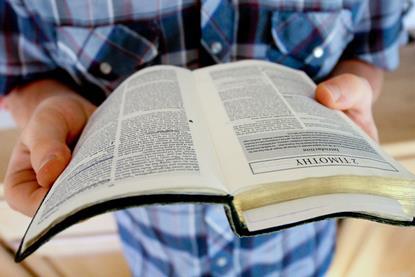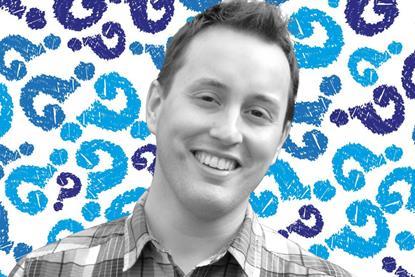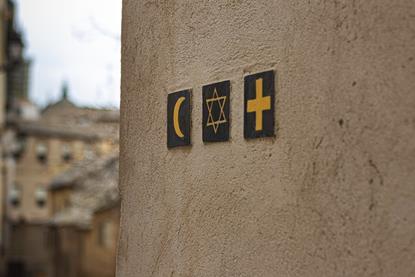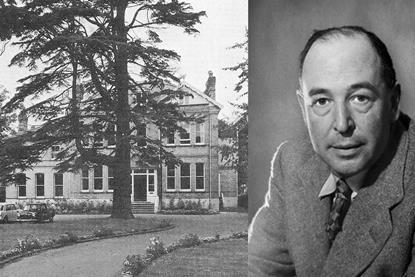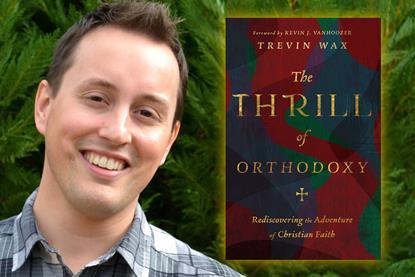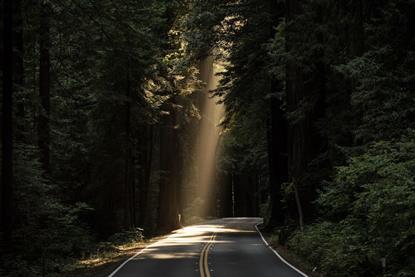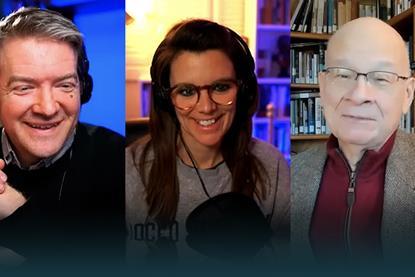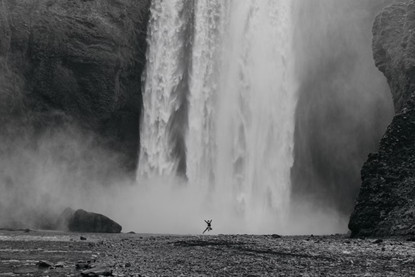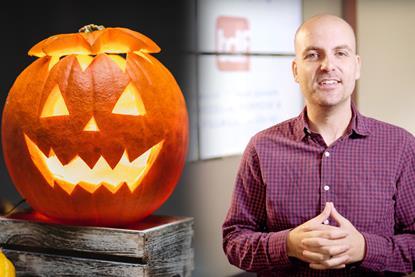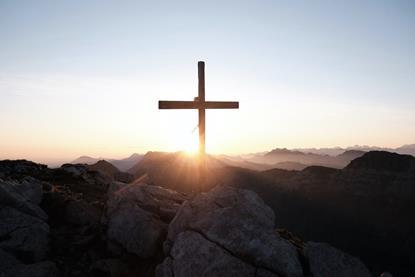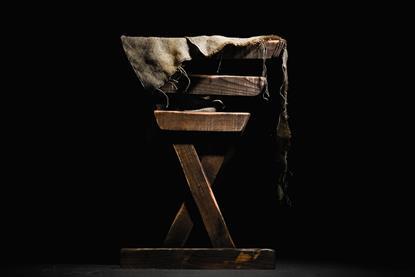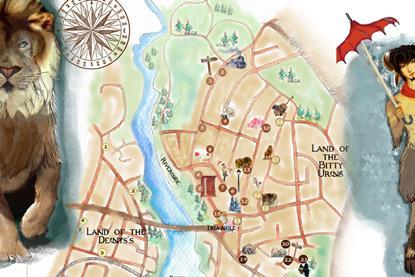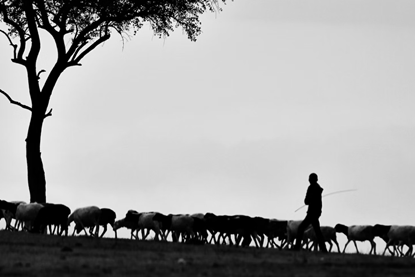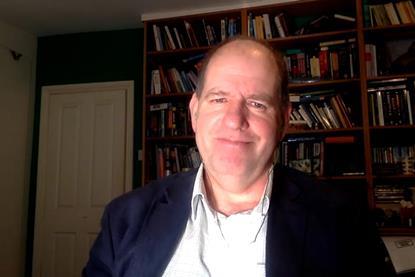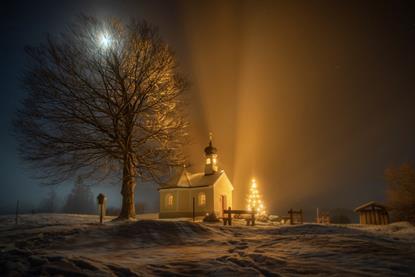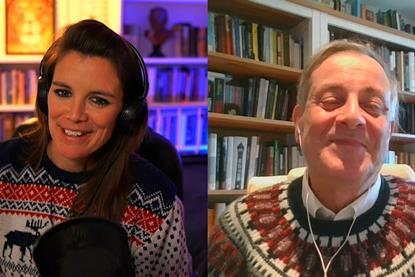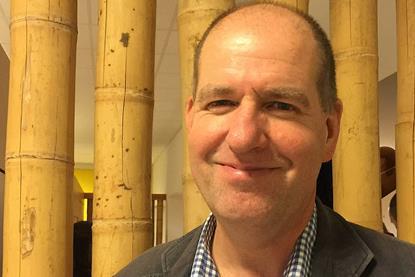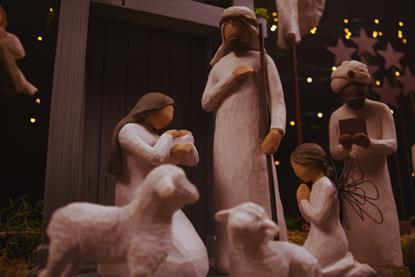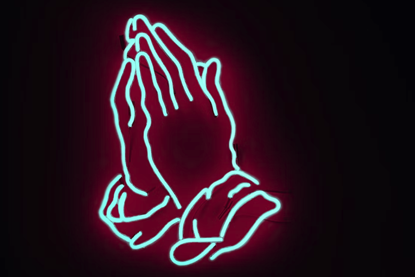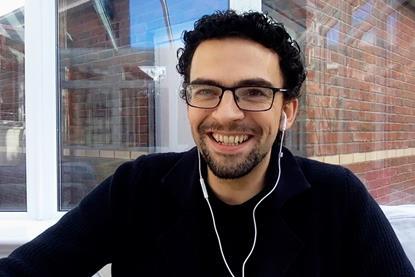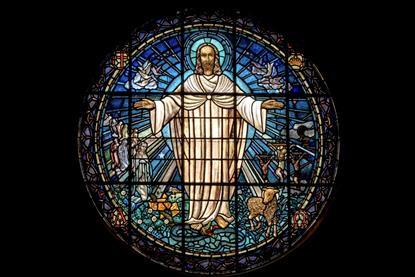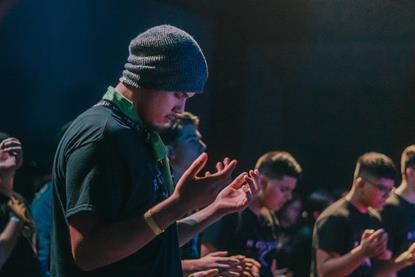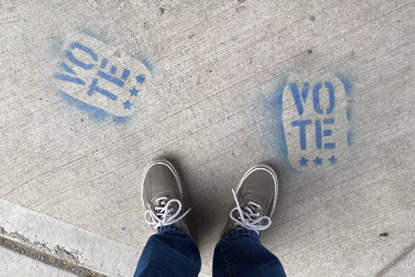Bible: Old Testament
Why doesn’t the Bible punish men for adultery?
In this episode of Ask NT Wright Anything, Tom Wright and Mike Bird tackle three tough questions: Why does the Old Testament seem to treat women unfairly in adultery cases? What’s the meaning behind the Nazirite vow? And how is Christ really present in the Eucharist?
What was John the Baptist doing when he baptised Jews before Jesus’ ministry began?
Do ordained ministers have “more” of the Holy Spirit than lay people? What exactly was John the Baptist doing when he baptised Jews before Jesus’ ministry began? And are the Thirty-Nine Articles still fit for purpose today?
What did Paul mean by our “Earthly Tent”? And where is Eden?
Where is the Garden of Eden? What did Paul mean by our “earthly tent”? And does Genesis contain later edits, and if so, does that undermine Scripture?
Was the Nativity invented to fulfil Prophecy? NT Wright answers
Was Jesus really born in Bethlehem, or did the gospel writers “invent” the story to fit prophecy? Did a Roman census ever force people to travel back to their ancestral towns? And what about Herod’s massacre of the innocents – pure theology, or plausible history?
Did Jesus fulfil Scriptural Prophecy? Jonathan Rowlands vs Rabbi Marc B Shapiro
As Advent approaches, John Nelson hosts Dr Jonny Rowlands (St Mellitus College, UK) and Rabbi Prof Marc Shapiro (University of Scranton, USA) to ask: did Jesus fulfil scriptural prophecy?
Big Bang, fine-tuning and the limits of science – can cosmology point us to a Creator?
Unbelievable? host John Nelson reflects on a debate he hosted between Niayesh Afshordi and Michel-Yves Bolloré about whether cosmology and the Big Bang prove the existence of God—or reveal deeper cosmic mysteries. John Nelson asks, Does Cosmology Prove the Existence of God?
Tom, Should We Work Out? Why Is The Bible Authoritative?
In this episode, Tom Wright and Mike Bird answer three big listener questions: Should Christians care about physical fitness, and how does it relate to spiritual health? Why is the Bible authoritative, and how should we understand its authority today? And finally, what did Jesus really mean by the “unforgivable sin”? Join them for practical wisdom and theological insight on faith, body, and Scripture.
Should Church Leaders Be Ordained? Are We Needed To Usher In The New Creation?
Mike Bird and Tom Wright take on three big listener questions. How do we actually cooperate with the Spirit in God’s plan for new creation? Tom reflects on what it means to anticipate heaven and earth being joined, and how our present faithfulness participates in that future hope.
The Big Bible episode: Canon, Contradictions & Tradition
In this Big Bible Episode of Ask NT Wright Anything, Tom Wright and Mike Bird dig into big, timeless questions about the canon of scripture, how inspiration works, and why apparent contradictions in the Gospels don’t undermine their truth. They unpack how tradition and fresh interpretation must stay grounded in the historical context of the text, and why the church must always be, as Tom says, “semper reformanda” - always reforming around the Bible’s authority.
Faith, belief, and the fall of Jerusalem: what are we missing?
In this episode of Ask NT Wright Anything, Tom Wright and Mike Bird unpack the difference between faith and mere belief, showing how true biblical faith means trust, faithfulness, and allegiance to Jesus as King.
Will I Still Be Married in Heaven?
Will we ever see an OT Wright translation to match NT Wright’s New Testament for Everyone? Tom explains why an Old Testament version isn’t on the cards - but offers a witty alternative involving his son! The conversation moves on to remarriage, exploring whether we’ll still relate to our spouses in the same way in the new creation, and how Jesus’ words in the Gospels shape our understanding of life after death.
Can we read Jesus into every Old Testament story?
What did Jesus really mean in the Olivet Discourse? How should we read the Old Testament in light of the New? And what can Herod’s strange reaction to Jesus teach us about resurrection and eschatology?
Will God resurrect my cremated body? NT Wright on God’s grace, the Law, and new life after cremation
In this episode of Ask NT Wright Anything, Tom Wright and Mike Bird explore the deep connections between ‘hesed’ in the Old Testament and ‘charis’ in the New, offering a rich picture of God’s love and faithfulness. They tackle the sensitive topic of cremation and Christian burial, affirming the unshakable hope of resurrection.
#235 The New Testament in its World with special guest and co-author Mike Bird (Classic)
Today’s episode features a special guest - renowned Australian Bible scholar, co-authored and friend of Tom’s, Mike Bird. Together, they delve into their groundbreaking collaborative work, “The New Testament in its World: An introduction to the history, literature, and theology of the first Christians” which both combines and unpacks years of Tom’s major study into this seminal volume.
Is the Old Testament Story of Israel Historically Reliable?
Verifying every fact in the OT using archaeological evidence is not possible, but there is good justification for certain key aspects of ancient Israel’s story
#232 Making sense of Adam, Eve and the Genesis creation story (Classic)
Tom Wright joins Justin to answer listener questions on how to interpret the early chapters of Genesis, what he believes about the nature of Adam and Eve, whether suffering and death existed before the fall and much more… First broadcast in 2019.
The morality of the Old Testament God is justified by his holiness
Apologist Joel Furches argues that the accusations of ‘immorality’ against the Old Testament deity are resolved by his purity, and the solution that is offered through Jesus Christ
A Christian explanation for Natural Evil from the Dirckx vs Woodford debates
An apologetic for natural disasters using the Genesis creation story
Does the Bible condone slavery? #NoQuestionOffLimits Amy Orr-Ewing, Ben Thomas, & Ben Chang hosted by Ruth Jackson
Joining us on the panel is the renowned public theologian and author of several books including Why Trust The Bible? Dr. Amy Orr-Ewing, Dr. Ben Thomas, an international speaker and consultant anaesthetist from OCCA the Oxford Centre for Christian Apologetics, and Dr. Ben Chang, an A&E doctor and author of Christ and Culture Wars.
Ask NT Wright Anything #225 Will animals go to heaven? Are NDEs real? Is there ‘free will’ in heaven? (Classic)
In this episode, Tom dives into listener questions about heaven and the new creation. Discover whether free will still exists in heaven, what near-death experiences can reveal, and if we’ll be reunited with our loved ones and pets. Tune in for an enlightening discussion on the afterlife and beyond!
Life after doom: how to live a life of wisdom, resilience & love in unpredictable times with Brian McLaren hosted Andy Kind
How do we live well with nations, ecosystems, economies, religions, and other institutions in disarray? Unbelievable host Andy Kind seized the chance to talk with writer and activist Brian McLaren. Once banned reading for a young Andy Kind when he first embraced his faith, McLaren now joins him for a face-to-face conversation. Have we crossed tipping points towards an inexorable tide of doom?
Ask NT Wright Anything #224 Is the world doomed? Global justice and climate change (Classic)
Tom answers questions from listeners on whether the world is getting better or worse, on poverty and economic justice, and what climate change activism means for the theology of new creation.
Ask NT Wright Anything #223 Pastoral questions on porn, personal tragedy and coming back to faith (Classic)
Tom answers listener’s pastoral questions including a person racked by guilt over whether his wife’s miscarriages were a judgment on his porn addiction, a family wrestling with the death of a family member, and someone on a journey back to faith but unsure where to begin.
Ask NT Wright Anything #222 What if I’m not really saved? (Classic)
Can We Lose Our Salvation? Join us this week as Tom addresses common doubts that crop up time and again from our listener’s questions. Do you ever question if you can lose your salvation? Feel unworthy to be a disciple of Jesus? Wonder if you might think you’re saved, but actually aren’t, like those Jesus refers to in Matthew 7:21-23 saying, ‘depart from me’? Today on Ask NT Wright Anything we’re sharing insightful, biblical and what we hope will be some comforting responses, to help us all as we seek clarity in our spiritual journey.
Ask NT Wright Anything #220 Understanding the Concept of Satan in the Bible (Classic)
Tom answers listeners questions on the question of Satan and the powers of evil. Are we supposed to believe in a literal Satan? Explore with Tom Wright in today’s episode of Ask NT Wright Anything what the New and Old Testaments say about the devil, demons, and how Jesus counters all evil throughout his ministry and ultimately at the cross.
Ask Nt Wright Anything #219 Why don’t I hear from God any more? (Classic)
Join Tom today as he sits down to answer a fresh batch of questions from listeners who are having trouble hearing from God.
Why do we get the Bible so wrong?
Author Drew Cordell looks at the most annoying mistakes Christians and non-Christians make when it comes to the Bible
Ask NT Wright Anything #217 Dear Tom: I’ve got questions about Marriage (Classic)
Tom delves into the complexities of marriage, addressing personal and burning questions from our listeners. From pondering the nature of married relationships in the new creation to offering advice for those on the brink of tying the knot, Tom brings wisdom and clarity in today’s episode.
Is God fully in control? 4 views of divine sovereignty
Writer Steve Schramm explores determinism and freewill, looking at what the Bible, philosophy and Christian history say about divine sovereignty
Ask NT Wright Anything #215 Should we take the devil seriously? (Classic)
A bit of a twist today as we answer listener’s questions that have come in asking: are we meant to take Satan literally? Join Tom Wright as he unravels some of the intricate threads of the New and Old Testaments to uncover the biblical portrayal of the devil.
Ask NT Wright Anything #213 Which Bible Translation is the best one? (Classic)
Listeners ask questions on which Bible translations we should deem as the best ones and which ones we should use on a daily basis. What makes a good translation, why doesn’t Tom capitalise ‘holy spirit’, and what does he make of Pope Francis ‘changing’ the Lords’ Prayer? Tom also discusses the process and thinking behind his own translation of the New Testament in ‘The Bible For Everyone’.
Ask NT Wright Anything #212 The New Testament in its World with special guest and co-author Mike Bird (Classic)
Today’s episode features a special guest - renowned Australian Bible scholar, co-authored and friend of Tom’s, Mike Bird. Together, they delve into their groundbreaking collaborative work, “The New Testament in its World: An introduction to the history, literature, and theology of the first Christians” which both combines and unpacks years of Tom’s major study into this seminal volume.
Ask NT Wright Anything #211 Singleness, dating and being unequally yoked. Should christians date non-christians? What’s the point of it all? Puzzled and pastoral questions this week with Tom (Classic)
Help! I am a new christian and I’m worried I’m unequally yoked in my relationship? What is the biblical view of singleness? Should Christians date non Christians? Was Jesus at my mother’s deathbed? What’s the point of it all? In this episode Tom answers the personal, pastoral and puzzled questions of listeners.
Ask NT Wright Anything #210 The Problem of Evil and Suffering (Classic)
In today’s Episode theologian and historian Tom Wright looks at listener questions on one of the biggest topics and questions the Christian faith faces today. What is the nature of free will, does Christianity truly offer an answer to the problem of evil and suffering? Will it be possible for there to be another ‘fall’ in the new creation? And the hosts of the Libertarian Christian Podcast have some questions for Tom about living as Christians in today’s world.
Is God a moral monster? How Paul Copan’s book shaped his ministry
Joel Furches looks at the impact of Paul Copan’s book Is God a Moral Monster?, written in response to Richard Dawkins’ accusation that “the God of the Old Testament is arguably the most unpleasant character in all fiction”
Ask NT Wright Anything #209 Israel and the Second Coming (Classic)
How should Christians think about the place of Israel today? Do the Jewish people still have a distinct role in God’s purposes? The Bible says Jesus will return ‘soon’, so why hasn’t he?
Unapologetic #91 Michael Lloyd: Where does our value come from?
Rev Dr Michael Lloyd, co-author of Image Bearers, explores how the image of God shapes our understanding of what it is to be human. Is secular psychology sufficient? Why is restoration necessary? How does community help? Why is diversity so important?
Unapologetic #86 Andrew Gosler: Why the neo-Darwinian framing of evolution is profoundly flawed
Rev Andrew Gosler, professor of Ethno-ornithology at Oxford University, highlights some of the deficiencies he sees in Richard Dawkins’ work. He also shares the potential limitations and dangers of a neo-Darwinian framing of evolution, such as racism and eugenics.
The birth of Jesus: Historical fact or hidden agenda?
Writer Steve Schramm explores whether the Nativity story can be trusted
The CS Lewis Podcast: #134 Alister McGrath: Is there an expiry date on Lewis’ relevance?
In the final part of their discussion on whether CS Lewis is still relevant 60 years after his death, Professor Alister McGrath and Ruth Jackson ponder whether he also appeals to agnostics, atheists and those of other religions. Plus, is there a modern-day CS Lewis? Where should someone start if they are engaging with Lewis for the first time? And will Lewis ever cease to be relevant?
Unapologetic #80 Bishop Arun Arora: What is Advent and why is it significant?
Bishop Arun Arora, author of the Archbishop of York’s Advent book Stick With Love, shares how a young Brummie with a Sikh dad and Hindu mum became a Christian through Billy Graham. Having been in the Church for 30 years before he saw another Asian man in Church leadership, Arun shares why he and the Archbishop of York have such a strong commitment to racial justice.
Pope Francis on why we need hope
The Pope shares his thoughts on how we can be people of hope in a world that desperately needs it
Unapologetic #79 Amy Orr-Ewing: Is there any evidence for a virgin birth?
In the final part of their discussion, Dr Amy Orr-Ewing discusses whether we can believe in a virgin birth, why this birth is significant and how we can trust the witness of Mary. Plus, why is justice important to the Christmas story? And, how can Jesus be both fully God and fully man?
Can the Bible teach us anything about depression?
Rico Villanueva, Langham Partnership’s regional commissioning editor for Asia, shares how studying the psalms of lament have helped him with his bouts of depression
What is Wicca and how does it differ from Christianity?
Apologist Joel Furches explores the central beliefs of Wicca and looks at its historical relationship with Christianity
Unapologetic #78 Amy Orr-Ewing: Why are women central to the Christian story?
Dr Amy Orr-Ewing, author of Mary’s Voice, explores the context of Mary, mother of Jesus, and looks at why women play such a significant role in Christianity. Plus, what is the Magnificat, why is it so revolutionary? And how is it relevant today?
The CS Lewis Podcast #131 David Bates: CS Lewis Reading Day
David Bates and his team at Pints With Jack have helped establish a day to celebrate CS Lewis and his work. His fellow Inkling, JRR Tolkien, already has a special reading day, but “why should the Tolkien nerds have all the fun?”! Listen in to hear why David thinks Lewis is still relevant today and how you can get involved with the inaugural CS Lewis Reading Day on Lewis’ birthday - November 29th.
At the going down of the sun and in the morning, should we remember them?
As we approach Remembrance Day in the UK and Veterans Day in the US, Joel Furches explores whether we should be praying for our military
Matters of Life & Death: The Fall: Bad actor theory, a malevolent voice in the Garden, Total Depravity and Original Sin, and the ‘Christian heresy’ of liberal humanism
Creation. Fall. Redemption. New Creation. This is the grand narrative of scripture and the theological foundation we use to try to probe into the ethical challenges thrown up by advances in science and technology.
Unapologetic #76 Sarah Irving-Stonebraker: How do we find meaning?
In the second part of their discussion, Sarah Irving-Stonebraker shares how she moved from atheism to agnosticism, ending up in a church. What is meaning? How do we find it? Does Christianity have anything to say to our cultural moment?
Cobbler turned missionary: How William Carey brought hope to the hopeless
Author Mark Roques explores the life of Baptist preacher William Carey
Unapologetic #74 Michael Lloyd: Should we all study theology?
Rev Dr Michael Lloyd, author of Cafe Theology, shares his story including why he got ordained, how he ended up in academia and why he changed his mind on the ordination of women. He also discusses how to assess the veracity of doctrines and why he believes everyone should study theology.
Is Western culture eroding Christianity?
Sam Reimer, professor of sociology and author of Caught in the Current, explores how authority, belief and behaviour have changed over the years and the impact this has had on faith
Discovering purpose: An engineer's evolution from atheism to a life filled with meaning
Apologist Jana Harmon shares the story of Neil Placer, who discovered the Christian faith via years of atheism
Bennu the asteroid: Why does the Universe exist and why should we care?
Nasa’s Osiris-Rex returned from a seven-year mission with asteroid Bennu’s dust, aiming to shed light on the Universe’s formation. Erik Strandness examines the project’s theological and philosophical impacts.
Are humans better than animals?
Apologist Nathan Rittenhouse shares his thoughts on Psalm 8 and its ramifications
Why secular sceptic Nir Eyal thinks we need Church
Theology student David MacPherson reflects on a recent episode of The Diary of a CEO, where Nir Eyal discussed the benefits of church and a worshipping community
Does deconstruction signal the death of faith?
Erik Strandness reflects on deconstruction and reconstruction following an Unbelievable show on this topic
Unapologetic #70 Phil Knox: Dealing with objections
Why do many people deem religion irrelevant? What are some of the biggest objections to belief in God? Why are droves of young people leaving the Church? Evangelist Phil Knox shares some of his thoughts about these big topics and gives some tips on how to share your faith effectively.
Is the presence of God merely an illusion? A scientist investigates
Ken Miles, clinical academic and author of From Billiard Balls to Bishops: A Scientist’s Introduction to Christian Worship, explores whether we can feel the presence of God in an age of science
Unapologetic #69 Phil Knox: Does evangelism matter?
Evangelist Phil Knox, author of Story Bearer and The Best of Friends, shares some of his story with Ruth Jackson, speaking about the impact of his dad’s death at a young age. Plus, they discuss why evangelism matters and how we can share our story and be a “good news person in a bad news world”.
The late Queen (1926-2022): Reflections from a bishop a year after her death
Retired bishop Richard Harries shares his thoughts about Queen Elizabeth II, who died a year ago on 8th September 2022
What is Buddhism and how does it differ from Christianity?
Apologist Joel Furches explores the central beliefs of this popular Eastern religion, and compares it to Hinduism and Christianity
Is there more to life than mere matter?
Dr Erik Strandness explores the relationship between the soul, mind, brain, body and spirit following a recent Big Conversation about near death experiences
Do near death experiences contradict Christian belief and doctrine?
Journalist Heather Tomlinson explores near death experiences and theology in light of a recent Big Conversation on this topic
Jesus is the true and better Tim Keller
Rev Sam Allberry, a close friend of Tim and Kathy Keller, delivered a moving tribute at Tim Keller’s memorial service on 15th August. Here’s what he said
Remembering Tim Keller: Death has lost its sting
Entrepreneur Max Anderson shares his final reflections on the great Tim Keller who influenced his life in a deeply profound way
Remembering Tim Keller: How our daily work has an eternal value
Entrepreneur Max Anderson reflects on his New York pastor and friend’s teaching on work
Remembering Tim Keller: The purpose of marriage
Entrepreneur Max Anderson reflects on his New York pastor and friend’s teaching on marriage
Remembering Tim Keller: The heart is an idol factory
Entrepreneur Max Anderson reflects on his New York pastor and friend’s teaching on idolatry
Remembering Tim Keller: Jesus’ teachings only matter if the resurrection is real
Entrepreneur Max Anderson reflects on his New York pastor and friend’s apologetic teaching
Remembering Tim Keller: Religious people may be just as lost as the irreligious (maybe more)
Entrepreneur Max Anderson reflects on his New York pastor and friend’s teaching on the Prodigal Son
Remembering Tim Keller
Entrepreneur Max Anderson reflects on the many things he’s learnt from his New York pastor and friend
Unapologetic #64 Ana Ávila: Has science disproved religion?
Ruth Jackson continues her conversation with Mexican writer Ana Ávila who studied clinical biochemistry. Why is there a perceived conflict between science and religion? Does science contradict the Bible? Can you prove there is a God?
The CS Lewis Podcast #117 Vivisection, mental health, racism and sexism
We dive into some of the important issues explored in Lewis’ Space Trilogy. Why was he so vehemently opposed to animal experimentation? What would Lewis say to those experiencing mental health struggles today? Plus, Alister McGrath responds to the accusation that CS Lewis was sexist and racist.
Ask NT Wright Anything #179 Can I trust the Old Testament? (Classic)
From Dec 2019: Tom answers questions about when the Book of Daniel was written, is the book of Job historical and does studying the Old Testament undermine faith?
Christians in science: How a military meteorologist became a theologian
Charles Clough is a retired military meteorologist who became a Christian while at MIT. Apologist Joel Furches spoke to him about being a scientist and a theologian
Unapologetic #63 Ana Ávila: Faith, questions and apologetics in Latin America
Mexican writer Ana Ávila, who lives in Guatemala, shares her insights into religion in Latin America. How do we probe our beliefs? What does evangelism look like in a nominally Christian culture? How is apologetics received in some of these countries and what are the big questions being asked?
What Daleks can teach us about truth
Linguist and author of Dalek Christianity Tom Schwarz explores what factors influence our perception of truth. He also looks at how we can celebrate different perspectives
Ask NT Wright Anything #178 Bible Translations and Controversies (Classic)
From Dec 2019: Listeners ask questions on which Bible translations are best and Tom’s own translation of scripture ‘The Bible For Everyone’. What makes a good translation, why doesn’t Tom capitalise ‘holy spirit’, and what does he make of Pope Francis ‘changing’ the Lords’ Prayer?
What does it mean to be human?
Are science and religion in conflict? Is there more to life than mere matter? Where do we find meaning? Erik Strandness explores these big questions in light of a recent Big Conversation with atheist Philip Ball and Christian Nick Spencer
What is Hinduism and how does it differ from Christianity?
Apologist Joel Furches explores the evolution of religion, focussing on the most ancient religion still practised today
Unapologetic #61 Vince Vitale: Why does God allow suffering and how can I cope?
Philosopher Dr Vince Vitale presents some of his PhD research around evil, suffering and theodicy. He and Ruth Jackson share their own experiences of suffering miscarriages, demonstrating that this is not just a theoretical question of why there is pain, but a deeply practical one of how we are to deal with this agony.
Is parachurch the solution to Christian unity?
As churches and denominations around the world become increasingly divided and fractured, Erik Strandness encourages Christians to unite for the sake of those outside the Church
Is it ever OK for Christians to be violent?
Apologist Clinton Wilcox explores whether the Bible mandates pacifism or if acts of violence can ever be justified
Food for thought: What has nutrition got to do with faith?
Erik Strandness takes a look at a number of biblical metaphors involving food and explores what they mean for our faith
Unapologetic #59 Vince Vitale: From scepticism to Christian apologist
Ruth Jackson speaks to Dr Vince Vitale, one of the new guest hosts of Premier Unbelievable?, about his journey from scepticism to Christianity while studying philosophy at Princeton University.
Unapologetic #58 Collin Hansen: Does anyone care about apologetics?
Are people even asking questions? If so, are those questions dramatically different from what they used to be? How should we respond to our rapidly changing culture? Collin Hansen, executive director of the The Keller Center for Cultural Apologetics, looks at some important questions around cultural apologetics and draws on the wisdom of Tim Keller (1950-2023).
Unapologetic #56 Collin Hansen: Tim Keller (1950-2023) - A pastor to sceptics
In the third part of our discussion with Collin Hansen, author of ’Timothy Keller: His Spiritual and Intellectual Formation’, we focus on Keller’s ministry in New York and beyond. Hansen also shares what Keller would want to say to the global Church and speculates on his lasting legacy.
The CS Lewis Podcast #108 Tim Keller (1950-2023) on CS Lewis
In this special episode following the death of Tim Keller on Friday 19th May, Ruth Jackson speaks to Collin Hansen, author of ’Timothy Keller: His Spiritual and Intellectual Formation’. They talk about Keller’s love for CS Lewis and reveal some fascinating stories about Kathy Keller, Tim’s wife, who was one of the last people to correspond with Lewis before his death.
Riches to rags: How a millionaire lost nearly everything, but found God
Former atheist Stu Fuhlendorf felt no need for God, achieving high level of success and power in the business world. However, his achievements were tainted by emptiness and addiction, which helped him become open to his need for God. Jana Harmon shares his story
Unapologetic #55 Collin Hansen: Tim Keller (1950-2023) on women, family life and homosexuality
We continue our conversation with Collin Hansen, author of ’Timothy Keller: His Spiritual and Intellectual Formation’, who highlights some of the key women in Keller’s life, particularly his wife Kathy. Hansen explains why Tim Keller was a complementarian and speaks about Keller’s brother, Billy, who died from AIDS in the 1990s.
What can George Bush’s 1992 failed presidential campaign teach us about salvation?
Erik Strandness challenges us to rethink the way we share our faith for the sake of our young people
Unapologetic #54 Collin Hansen: Remembering Tim Keller (1950-2023)
Following the death of Tim Keller on Friday 19th May, Collin Hansen, author of ’Timothy Keller: His Spiritual and Intellectual Formation’ spoke to Ruth Jackson about Tim Keller’s early life and shared some of his favourite memories of the New York apologist.
The CS Lewis Podcast #106 Teodora Driscu: Lewis and the embodiment of heaven
University of Iasi PhD candidate Teodora Driscu looks at longing and the image of heaven in Lewis’ works, focussing particularly on ‘Perelandra’. This talk was originally given at a CS Lewis symposium called Now We Have Faces, which was hosted by The CS Lewis Group at Ulster University in coordination with English at Ulster. The title of Teodora’s presentation was ‘The Embodiment of Heaven in Lewis’ Works’.
Unapologetic #53 John Swinton: Disability, learning difficulties and dementia
John Swinton, professor in practical theology and pastoral care at Aberdeen University and a former psychiatric nurse, challenges the way we approach disability, ensuring we create spaces where everyone belongs and has their spiritual needs met. We also discuss difficult questions around dementia, such as what it means to know God when you have limited conceptual intellectual capacity.
Should we be sceptical about the paranormal?
Erik Strandness explores how we should respond to supernatural phenomena in response to an Unbelievable? show about paranormal activity, such as near-death experiences, angels and ghosts
Unapologetic #52 John Swinton: Supporting people with mental health challenges
May marks Mental Health Awareness Week, so we spoke to John Swinton, professor in practical theology and pastoral care at Aberdeen University, who spent 16 years as a psychiatric nurse. He shares his thoughts about how to care for those experiencing mental health difficulties, particularly young people.
Does Big Bang cosmology point to a creator?
Writer Steve Schramm investigates the Big Bang theory and explores its implications
Why King Charles III’s coronation matters
Church of England vicar Rev Jeremy Crossley reflects on why we crown and what the upcoming coronation reveals about King Charles III’s vocation and calling
Death to deconstruction: Can exvangelicals ever reconstruct their faith?
Erik Strandness reflects on an Unbelievable? discussion between punk singer-turned-pastor Josh Porter and former-Christian Jon Steingard, exploring why numerous young American evangelicals lose their faith and whether they’re ever able to get it back
The CS Lewis Podcast #103 Dr Sarah Waters: Out of the Silent Planet and the Covid pandemic
English lecturer Dr Sarah Waters shares her insights into one of CS Lewis’ science fiction books, particularly in regards to how we relate to one another post-Covid. This talk was originally given at a CS Lewis symposium called Now We Have Faces, which was hosted by The CS Lewis Group at Ulster University in coordination with English at Ulster. The title of Sarah’s presentation was ’Facial (mis)recognition: Out of the Silent Planet and the boundaries of face-to face’.
Doesn’t the Bible say we’d be better off without a king?
As we approach the King’s coronation, journalist Heather Tomlinson explores the biblical idea of kingship and what that means for us
Unapologetic #50 Lydia McGrew: Can we trust the Gospels?
Dr Lydia McGrew, an analytic philosopher and author of Testimonies to the Truth: Why you can Trust the Gospels, explores how reliability is assessed in regards to ancient documents. She tackles some of the alleged contradictions in the Gospels and looks at why certain elements, such as accurate geography, cultural knowledge and names are important.
How should Christians respond to the Church’s dark history: Crusades and the Inquisition
Apologist Joel Furches corrects what he believes are a number of misconceptions about some of these historical events and explores what Christians should do about them
The CS Lewis Podcast #102 Alister McGrath: The CS Lewis phenomenon
In the final episode of our series focussing on McGrath’s book, CS Lewis: A Life, we look at why someone who expected to be forgotten within five years of his death has had such a lasting impact. Why is CS Lewis still so popular and how long will his appeal last? Plus, this is your last chance to register for the opportunity to win a copy of McGrath’s seminal biography of Lewis.
Indoctrination: The potential dangers of Hollywood films
Author Mark Roques warns us to be on our guard when watching television and movies
What is Mormonism, and how does it differ from Christianity?
Writer Steve Schramm explores Mormonism and questions how Christians should respond to it
Dear Religion: What are you doing about teen suicide?
Neonatal physician Erik Strandness asks some challenging questions in light of many young people’s desperate struggles and explores what hope there is
Unbelievable? Celebrating 17 years - Justin Brierley, Ruth Jackson, and Vince Vitale
The Unbelievable? show has been broadcasting for over 17 years. Justin Brierley and Ruth Jackson take a retrospective tour through highlights from the show from day one to some of the most significant debates that have been hosted, before being joined by Dr. Vince Vitale for a special announcement by Justin.
Unapologetic #48 Jeremiah Johnston: Are there credible reasons to believe in God?
Dr Jeremiah Johnston, president of the Christian Thinkers Society and father to five children (including triplets!), shares his journey into apologetics, looking at the importance of engaging both the head and heart. As well as speaking about how to live distinctively, ask good questions and allow room for doubt, Jeremiah unpacks some of the big issues impacting young people today.
The CS Lewis Podcast #100 Alister McGrath: 100th special celebrating CS Lewis’ legacy and how he can help renew the Church
In this special episode, we take a break from our series on Professor Alister McGrath’s seminal biography, CS Lewis: A Life, to celebrate reaching our 100th episode. Alister shares some of his thoughts around what modern readers can learn from Lewis and how he can help with the renewal of the Church.
If Jesus really rose from the dead, why does it matter today?
Professor John Swinton, a former psychiatric nurse-turned practical theologian at Aberdeen University, reflects on the significance of the resurrection and its impact
What’s so good about Good Friday? And why is Holy Saturday significant?
Professor John Swinton, a former psychiatric nurse-turned practical theologian at Aberdeen University, reflects on the significance of Good Friday and Holy Saturday
If Jesus really rose from the dead, how does the resurrection make sense of our suffering?
Dr Jeremiah Johnston, author of ’Body of Proof: The 7 Best Reasons to Believe in the Resurrection of Jesus-and Why It Matters Today’ shares his thoughts on this painful topic
Did Jesus actually rise from the dead?
Apologists Nick Peters and Joel Furches explore the plausibility of Christianity’s central claim
Unapologetic #47 Jeremiah Johnston: The 7 best reasons to believe Jesus rose from the dead
New Testament scholar Dr Jeremiah Johnston shares ground-breaking research from his new book ’Body of Proof: The 7 Best Reasons to Believe in the Resurrection of Jesus-and Why It Matters Today’. He also explains how we can experience overwhelming hope in the midst of great suffering if Jesus really rose from the dead.
Was Jesus really crucified?
Apologists Nick Spencer and Joel Furches examine the evidence for the event at the heart of Christianity
Why did Jesus have to die for me?
Dr Andy Bannister, director of the Solas Centre for Public Christianity, explores why he believes Jesus’ death on the cross was necessary
Unbelievable? Ask William Lane Craig Anything
Renowned Christian thinker William Lane Craig answers listener questions on a live edition of the show. He responds to questions on philosophy, Adam & Eve, suffering, the worst argument for God and more. Plus we hear from Jeremiah J Johnston on the 7 best reasons to believe in the resurrection.
What are Palm Sunday, Holy Wednesday and Maundy Thursday and why are they important?
Professor John Swinton, a former psychiatric nurse-turned practical theologian at Aberdeen University, unpacks some of its key moments and their relevance
What is Holy Week and why does it matter?
Professor John Swinton, a former psychiatric nurse-turned practical theologian at Aberdeen University, reflects on the events leading up to the death of Jesus and ponders their significance for our lives today
Unapologetic #46 John Swinton: darkness, death and extreme suffering - how Holy Week brings hope
In part two of his discussion with Ruth Jackson, Professor John Swinton shares what Holy Week means to him and explores what impact the suffering, death and resurrection of Jesus has on a world in need of hope.
What happens when you die?
Apologist Joel Furches explores one of life’s biggest questions
What actually happened on the cross? Exploring atonement theories
Writer Steve Schramm unpacks various atonement theories, looking at their historical and biblical origins
The despair of meaninglessness – an atheist’s worldview is radically transformed
Former atheist Jim Tickner shares his story of discovering God in the midst of an existential crisis
Does God speak today?
Heather Tomlinson shares a short explainer about charismatic gifts of the Spirit and cessationism, following a recent Unbelievable? debate
Unapologetic #45 John Swinton: a psychiatric nurse-turned practical theologian on suffering, faith and spiritual care
Ruth Jackson speaks to John Swinton, professor in practical theology and pastoral care at Aberdeen University. Having spent 16 years as a psychiatric nurse, John speaks about the importance of spiritual care in medicine. He also shares his thoughts on the problem of suffering.
Can the Gospels be trusted? The presence of casual coincidence
Gospel, Bible, reliability, manuscript, eye witness, testimony, coincidences, story, made up,Philosopher and author of Testimonies to the Truth: Why You Can Trust the Gospels, Lydia McGrew, looks at some key elements that point to the genuineness of eye witness testimony within the Gospel narratives
What does God have to do with teaching French?
Author Mark Roques challenges the assumption that some things are in the ‘secular box’, while others are in the ‘religious box’
Finding God through science – an atheist discovers chemical evolution can’t adequately explain the origin of life
Jana Harmon shares the story of Dr Fazale Rana who discovered God through his pursuit of science. His paradigm shift began when he began to find scientific explanations for the origin of life inadequate and started to look elsewhere
Unapologetic #44 Bruce Miller: Is the Bible reliable?
In this final episode, Bruce Miller, author of The 7 Big Questions: Searching for God, Truth, and Purpose, explores objections towards the Bible, including whether it is sexist, racist and out of date. Bruce also asks whether we can know and experience God personally, looking at why he doesn’t make himself more obvious.
Why I’m not shy about the gospel
Theologian Dr Andrew Ollerton explores what the gospel is and why he believes it needs to be shared
Are we all priests?
Erik Strandness explores what a priesthood of all believers means and what that looks like in practice.
Unapologetic #43 Bruce Miller: Is Christianity true?
Bruce Miller, author of The 7 Big Questions: Searching for God, Truth, and Purpose, tackles two huge questions: is Christianity too narrow and is Jesus really God? He also explores whether Jesus really rose from the dead.
Should we trust our brain or our emotions?
Erik Strandness explores how we can reconcile reason with joyfully dancing in our underwear
Ask NT Wright Anything #159 What difference does prayer make? Tom shares his prayer habits
Tom answers listener questions on prayer including: ‘Is prayer just telling God what to do?’ and ‘What difference does prayer make if God has already decided what to do?’. Kelly is nervous about praying out loud before a meal in public, and Jennifer is questioning the legitimacy of public displays of prayer in the USA. Tom responds to these questions and shares his own habits of prayer, including keeping a prayer diary.
Remembering theoretical physicist Professor Thomas McLeish (1962-2023)
Evangelist Greg Downes shares his personal reflections on his friend, the scientist and apologist Professor Thomas Charles Buckland McLeish, who died on 27th February
Is Asbury Theological Seminary really experiencing revival? President Timothy Tennent shares his thoughts
The leader of Asbury Theological Seminary reflects on what is happening at their campus in Kentucky
Protestant, Catholic and Orthodox: What’s the difference and does it matter?
Protestant Christian and apologist Nick Peters explores some key distinctions within different branches of Christianity
Unapologetic #41 Bruce Miller: Does life have a purpose?
In the first of four episodes on how to approach some of life’s most difficult questions, Ruth Jackson speaks to Bruce Miller, author of The 7 Big Questions: Searching for God, Truth, and Purpose, about belief, doubt and purpose.
Why would God allow the Turkey-Syria earthquake?
In light of the tragic Kahramanmaras earthquake, apologist Dr Sharon Dirckx shares her thoughts on how we reconcile the idea of a good and powerful God with the presence of natural disasters
The CS Lewis Podcast #93 Alister McGrath: CS Lewis’ literary scholarship
In the seventh episode of our series focussing on McGrath’s book CS Lewis: A Life, we explore why Lewis never used a typewriter, who the Inklings were and how they impacted his work, and what role women, such as Dorothy L Sayers, played in Lewis’ life. Plus, don’t forget to register to win a copy of McGrath’s seminal biography of Lewis.
Unbelievable? Sexuality, Gender & Identity: 2 views on LGBT and the church - Andrew Bunt & Charlie Bell
Andrew Bunt, Emerging Generations director at Living Out and author of ‘Finding Your Best Identity’, is a same-sex attracted Christian who has chosen celibacy and believes marriage is male-female. Charlie Bell, a gay Anglican vicar who also works as a psychiatrist, is the author of ‘Queer Holiness’ and wants to see gay marriage accepted in the church.
Can the Gospels be trusted? The texture of testimony
Philosopher and author of Testimonies to the Truth: Why You Can Trust the Gospels, Lydia McGrew, explores some of the characteristics of testimony within the Gospel narratives
Ask NT Wright Anything #157 Making sense of Adam, Eve and the Genesis creation story
Tom Wright joins Justin to answer listener questions on how to interpret the early chapters of Genesis, what he believes about the nature of Adam and Eve, whether suffering and death existed before the fall and much more… He also pulls out the guitar once more for a Genesis-themed song. First broadcast in 2019.
Death has lost its sting – how becoming a Christian eradicated a humanist’s overwhelming fear of dying
As an ardent atheist, Kim Endraske disliked Christians, but wrestled daily with existential dread. Jana Harmon shares Kim’s story of discovering the God who dramatically changed her life
How do you mend a broken heart? The cure we all need this Valentine’s Day
As we head into a day devoted to celebrating relationships, Erik Strandness looks at how God restores the relationships damaged through our infidelity
The CS Lewis Podcast #92 Alister McGrath: The making of a Mere Christian
In the sixth episode of our series focussing on McGrath’s book CS Lewis: A Life, we explore Lewis’ faith journey, looking at how and why he became a Christian. We also hear about the significant impact of JRR Tolkien. Plus, don’t forget to register to win a copy of McGrath’s seminal biography of Lewis.
Racial justice: Why and how should we fight for it?
As we approach Racial Justice Sunday, apologist Adam Coleman of Tru-ID looks at why all humans have intrinsic worth. He shares examples of abolitionists who took matters of justice into their own hands as well as those who opted for non-violence, trusting God to act on their behalf
Unbelievable? Death to Deconstruction: Josh Porter & Jon Steingard on whether exvangelicals can reconstruct their faith
Punk singer-turned-pastor Josh Porter charts his own journey of reconstructing his Christian faith in the book ‘Death to Deconstruction: Reclaiming faithfulness as an act of rebellion’. He discusses deconstruction, the Bible, the problem of evil and more with Jon Steingard, former lead singer of Hawk Nelson who underwent his own journey of deconstruction in 2020.
The CS Lewis Podcast #91 Alister McGrath: CS Lewis’ early years at Magdalen college
In the fifth episode of our series focussing on McGrath’s book CS Lewis: A Life, we look at some key moments in Lewis’ Oxford career, such as the death of his father. Plus, don’t forget to register to win a copy of McGrath’s seminal biography of Lewis.
How should Christians respond to transhumanism?
Apologists Clinton Wilcox and Joel Furches explore some of the core principles of transhumanism and their ramifications
Ask NT Wright Anything #155 Making sense of Old Testament violence
Tom responds to listener Qs on Andy Stanley ‘unhitching’ Christianity from the Old Testament, the historicity of the Exodus, and the way that Greg Boyd interprets violent portraits of God in ‘The Crucifixion Of The Warrior God’. First broadcast in 2019.
When the Church of England blesses gay marriage it signs its own death certificate
Social critic Bethel McGrew shares her thoughts on recent proposals by the House of Bishops to allow the blessing of same-sex marriages
Should Christians favour creation or evolution?: 4 different perspectives
Writer Steve Schramm explores Young Earth Creationism, Old Earth Creationism, Intelligent Design and Theistic Evolution
Fighting against God – a staunch atheist encounters God after a suicide attempt
Roger Sherrer vehemently believed religion was poison. Jana Harmon shares his story of transformation here
Ask NT Wright Anything #154 Tom answers Qs on universalism, hell and salvation
In an extended edition of the show originally broadcast on the Unbelievable? podcast, Justin asks a variety of listener questions on dispensationalism, John’s gospel, inerrancy, salvation, hell, universalism and Tom’s favourite books, music and much more… First broadcast in 2016.
Unapologetic #37 Alanzo Paul: a former opiate addict on how to reach young people
Originally from Canada, Alanzo Paul fell into a life of addiction after his parents’ divorce. Here, he shares some of his story with Ruth Jackson, including his reflections on working with Ravi Zacharias. He also looks at some of life’s big questions and suggests ways to reach the apathetic with the gospel.
Are there contradictions in the Bible?
Apologist Joel Furches explores one of the primary objections offered by Americans who exit the Christian faith
The CS Lewis Podcast #89 Alister McGrath: CS Lewis and the Great War
In the third episode of our series focussing on McGrath’s book CS Lewis: A Life, we explore Lewis’ experience of the First World War and the significant relationships he formed during this time, such as with the Moore family. We also delve into Lewis’ interest in sadomasochism! Plus, a quick reminder of our competition to win a copy of McGrath’s seminal biography of Lewis.
Ask NT Wright Anything #153 Is the Bible inerrant? Is ‘Sola Scriptura’ correct? What about verses endorsing slavery?
How should we treat the Bible? Inerrant? Infallible? Does it contain errors? Tom answers questions on the nature of the Bible as well as related issues such as whether the Reformers were right to concentrate solely on scripture rather than church tradition, and whether there is a ‘trajectory hermeneutic’ when it comes to issues like slavery in the Bible.
Unapologetic #36 Trevin Wax: How to tackle objections to Christianity
In the second part of their discussion, Ruth Jackson speaks to Trevin Wax, author of award-winning book ‘The Thrill of Orthodoxy’, about culture wars, evangelism and how to approach life’s big questions.
Running from God – a Jehovah’s Witness’ journey away from and back towards God
Claire Dooley grew up in a large religious family in Mississippi. Here, she shares some of her reasons for leaving the faith and why, after years of atheism and in her moment of deepest despair, she started exploring Christianity
What is Judaism and how does it differ from Christianity?
Writer Steve Schramm offers a helpful explanation on the relationship between these two key religions
The CS Lewis Podcast #88 Alister McGrath: CS Lewis’ unpleasant schooldays
In the second episode of a new series focussing on McGrath’s book CS Lewis: A Life, we look at why Lewis found school so thoroughly unpleasant and how it helped to cement his growing atheism. Plus, we launch a competition to win a copy of McGrath’s book.
Unapologetic #35 Trevin Wax: Can Orthodoxy be thrilling?
Trevin Wax, author of award-winning book ‘The Thrill of Orthodoxy’, speaks to Ruth Jackson about what Orthodoxy is, how we articulate it in a modern context and why we should pass it on to the next generation.
How effective are ‘thoughts and prayers’ in times of great suffering?
As the new year unfolds in the shadow of rising living costs, raging war and a pervasive mental health crisis, Erik Strandness looks at what those in the midst of despair actually need
Is it arrogant to disagree? Michael Gungor responds to his critics
Musician and exvangelical Michael Gungor responds to journalist Heather Tomlinson’s critique of his approach on a recent episode of Unbelievable?
Do all religions lead to God?
Apologist Joel Furches explores one of life’s big questions
Unbelievable? Tim Keller Q&A on cancer, prayer and forgiveness
Tim Keller is a renowned thinker, writer and speaker who has been dubbed New York’s ‘pastor to skeptics’. In a live online show hosted by Ruth Jackson and Justin Brierley he answers audience questions on his journey with pancreatic cancer, his transformed prayer life and his new book ‘Forgive’.
And it was very good: creation and humanity
Erik Strandness explores the place of humans on this planet
Is it arrogant for Jesus to claim to be the only way to get to heaven?
Writer Steve Schramm explains a potentially uncomfortable claim within Christianity
Unapologetic #34 Pedro Garcia: I became a Christian through Halloween
Apologist Pedro Garcia speaks to Ruth Jackson about how Halloween kickstarted his journey towards faith in Jesus.
Is the Western Church’s problem that it is too self-centred?
Digging deeper into Gungor’s rejection of Christian faith suggests so, says Heather Tomlinson
When atheism isn’t enough – an intellectual’s search for meaning
Jana Harmon tells the story of a man who discovered hope in the place he least thought he would find it
Teach the world to sing in a minor key
Erik Standness looks at what unites people in a crisis and why
The Top 10 Unbelievable? shows of 2022
Justin Brierley rounds up the most popular shows of the year
The cross as the ultimate symbol of deconstruction
Timothy James reflects on the significance of the cross and its meaning for our lives
Unapologetic #33 Finding Jesus changed Christmas forever
As we approach a new year, we speak to three people from different backgrounds who found new life in Jesus. They share their stories and talk about how finding Jesus has changed the way they celebrate Christmas for ever.
How should we respond to racial injustice?
As we approach a new year, we must continue to talk about these important issues. Clare Williams, apologist and founder of Get Real shares her thoughts about how Christians should respond to racial injustice
Secret service
Erik Strandness reflects on how we get to heaven and what that means for us
The CS Lewis Podcast #85 A magical Narnia trail
There is something inherently Christmassy about The Lion, the Witch and the Wardrobe and a church in the North East of England have used Lewis’ classic children’s tale to put on a special event, inviting local families to engage with the Christmas story in an imaginative way.
The faith of the shepherds: A Christmas reflection
Tim James looks at what we can learn from a bunch of seemingly unimportant individuals who were brave enough to accept an invitation to meet the Messiah
Unapologetic #32 Charles Foster: The virgin birth, child massacre and Shamanic astrology
In the second half of our discussion about Christmas, Charles Foster, author of The Christmas Mystery, looks at some of the more sinister and less straightforward elements of the biblical Nativity narratives.
My Eucharistmas: A personal memoir on Holy Communion during the festive period
Oxford student Jonathan Garner shares his thoughts on Advent and the Eucharist
Church service cancelled on Christmas day? Mine will be our last…and I wouldn’t miss it for the world
As Christmas falls on a Sunday this year, Bethel McGrew explores what that might mean for many Americans
The CS Lewis Podcast #84 CS Lewis on Christmas
What did Christmas mean to CS Lewis? How did he celebrate it? Did he ever write about the festive season? Professor Alister McGrath shares his insights into CS Lewis’ depiction of the incarnation and Christmas.
Why the virgin birth?
Medical scientist Peter Elwood OBE examines the evidence for the miracle at the heart of the Christmas story
Motorbikes and Jesus: How we can engage in cringe-free conversations this Christmas
As we enter the festive season, we may be faced with opportunities to talk about Jesus and the Christian story. Mark Roques looks at how we can approach these conversations
Unapologetic #31 Charles Foster: The truth behind the Christmas story
Why do only two of the four Gospels mention Jesus’ birth? What if the Christmas story isn’t true? Can we trust the biblical sources? Charles Foster, author of The Christmas Mystery, answers some of the tricky questions surrounding the Nativity narratives in the Bible.
Joy in the trials: Why something better than happiness is promised at Christmas
As we enter a festive season full of “comfort and joy”, Erik Strandness looks at what biblical joy looks like and how we are to practise it in the midst of the darkness
Five reasons we can trust the Nativity narratives
Cold-case detective J .Warner Wallace examines the evidence around the biblical accounts of the Christmas story
Does God answer prayer in a miraculous way?
Christmas celebrates one of the greatest miracles of all time – God becoming man – but should we reliably believe in miracles and can they be the result of our prayers? Retired priest, John Clarke, investigates
Hope amid heartache: Ruth Jackson’s journey from miscarriage to motherhood
Ruth Jackson recalls her experience of miscarriage at Christmas and reflects on experiencing pain, fear and doubt in a season of celebration and frivolity
Unapologetic #30 Murdo Macleod: How John Wycliffe impacted my life
Ruth Jackson spoke to film director Murdo Macleod about his new film ‘Morningstar’, which focuses on John Wycliffe’s life and legacy.
How do you solve a problem like Jesus?
As we approach the celebration of Jesus’ birth, Erik Strandness explores who the founder of Christianity really is and what our response should be
Why do Christians believe God is trinity?
Writer Steve Schramm explores one of the strangest Christian doctrines
Unapologetic #29 Jon Tyson: Digital evangelism and reaching a lost generation
Ruth Jackson speaks to New York-based pastor Jon Tyson about reaching young people, digital evangelism and parenting.
US elections and countercultural power
Following mid-term elections in the US, Erik Strandness explores what it would look like to operate from a perspective of God’s kingdom rather than man’s




